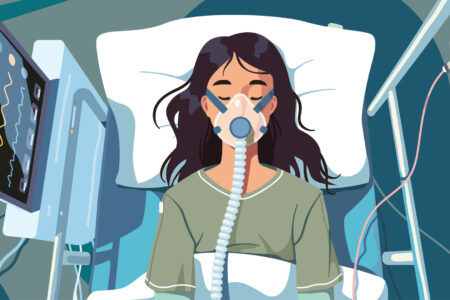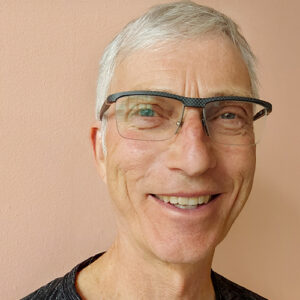
Canada is undergoing its human-rights review at the United Nations, a standard peer evaluation all 193 member countries must undergo every few years to gauge their progress on ensuring fundament rights of all people regardless of age, ethnicity, language, religion or any other status.
In November, Canada reported on the headway it has made in human rights since its 2018 review, and other countries contributed multiple recommendations for further improvements. Canada is to formally respond to these proposals in Geneva on March 22.
As a family physician who has worked in urban communities for several decades, a recommendation from Thailand particularly caught my attention: “Ensure improved access to health services for all, especially persons in vulnerable situations and those with no immigration status.”
Thailand is host to millions of undocumented migrants and refugees and has been a leader in its region in developing health-care policies for these populations.
The recommendation hit home.
In Ontario, many of the people we serve in community health centres have no immigration status.
It’s estimated that between 20,000 and 500,000 people in Canada are undocumented migrants. Most become undocumented after arriving legally, then overstay their authorized period or can’t qualify for existing immigration programs.
Community health centres can apply for special funding to provide primary-care services to residents without health cards. Because of limited capacity, they can care for only a small fraction of the many thousands of undocumented migrants who live in Ontario.
But health care should be a human right for everyone in Canada.
Further, community health centres are only equipped to provide primary care. Significant barriers remain for those who need specialist or hospital services. These can cost thousands of dollars, so people with precarious immigration status often don’t seek care until their medical situation is dire. In many of these cases, early intervention could prevent unnecessary complications and suffering
Inadequate access to preventative care also affects our overall health system by increasing the number of patients in crowded emergency departments and hospitals.
Like many other physicians, the harm to physical and mental health I’ve seen in individuals and their families has moved me to public advocacy.
There are many ways in which people become undocumented and thus uninsured in Canada. It can be the result of a sponsorship breakdown, the rejection of a refugee claim, or overstaying a visa.
International students, many of whom hold part-time jobs, have health insurance tied to their studies but can lose it if they leave their academic program. Temporary foreign workers have access to some level of health insurance but lose it if they leave the program in search of better working conditions.
Canada’s complex immigration system frequently results in precarious immigration status with immediate consequences for access to health care.
At the same time, we continue to rely on these workers to support our labour force, particularly in agriculture, domestic work, manufacturing and even health care. Universities and colleges depend on international students for the exorbitant tuitions they pay, which compensates for declining public investment in academic institutions.
Undocumented workers pay sales taxes, and businesses generate profits through their work. Domestic caregivers and cleaners support families, enabling family members to work outside of the home.
Many undocumented migrants are doing what everyone calls “essential” work. But too often as soon as they seek health care, they are described as “illegals” who are “taking advantage” of the system.
But access to health care shouldn’t depend on a person’s immigration status or economic value.
Back in May 1976, Canada agreed to the UN’s International Covenant on Economic, Social and Cultural Rights, committing to work toward “the right of everyone to the enjoyment of the highest attainable standard of physical and mental health” (Article 12).
Subsequent UN interpretations of the covenant point out that everyone has the right to access health care, including our most marginalized populations such as illegal immigrants.
I recently received a Black History Month poster featuring one of Canada’s greatest human-rights advocates on this issue.
Nell Toussaint was an undocumented migrant who was born in Grenada and came to Canada with a temporary visa in the 1990s. She was looking for a better life, and worked for years in multiple jobs, paid her taxes and had deductions made from her pay.
Her initial attempts at gaining citizenship failed, in large part due to a dishonest consultant. She developed severe and chronic health problems but was unable to afford the health care she needed, so she challenged the Canadian government in court. Toussaint based her argument on Canada’s Charter of Rights and Freedoms and on the international treaties Canada has signed guaranteeing the rights to life, health and freedom from discrimination.
When the courts dismissed her challenge, she took her case to the UN Human Rights Committee asking it to determine if her rights to life and non-discrimination under the International Covenant on Civil and Political Rights had been violated. The committee found in her favour in August 2018.
Canada needs to improve its immigration channels for essential migrant workers
This was an incredible victory, particularly since Toussaint had not only taken these steps for herself but for all undocumented migrants in Canada.
Canada continues to reject the committee’s finding, which has left thousands of our neighbours, workers and friends without access to health care. Toussaint eventually achieved citizenship on humanitarian and compassionate grounds – and thus access to health care – but by the time she did, it was too late. Her medical problems led to her death in January 2023 at the age of 53.
While the federal government has continuously dragged its feet, Ontario enacted Toussaint’s vision during the COVID-19 pandemic. In early 2020, the Ministry of Health created funding for hospitals and private medical practitioners to provide health care for everyone. But then, without public evaluation or consultation, the program was abruptly cancelled in March 2023.
Many medical, nursing and community organizations protested, but to no avail. Healthcare For All, a coalition of Ontario health-care providers (including myself), students, researchers and community development workers, has been fighting for the same vision for many years, and will continue to do so (you can sign our petition here).
Like many others, I will display the poster of Nell Toussaint in my office. And as our Canadian government prepares its submission to the UN Human Rights Council, we’ll make calls to our members of Parliament and push our leaders to endorse the human rights for which she fought.









